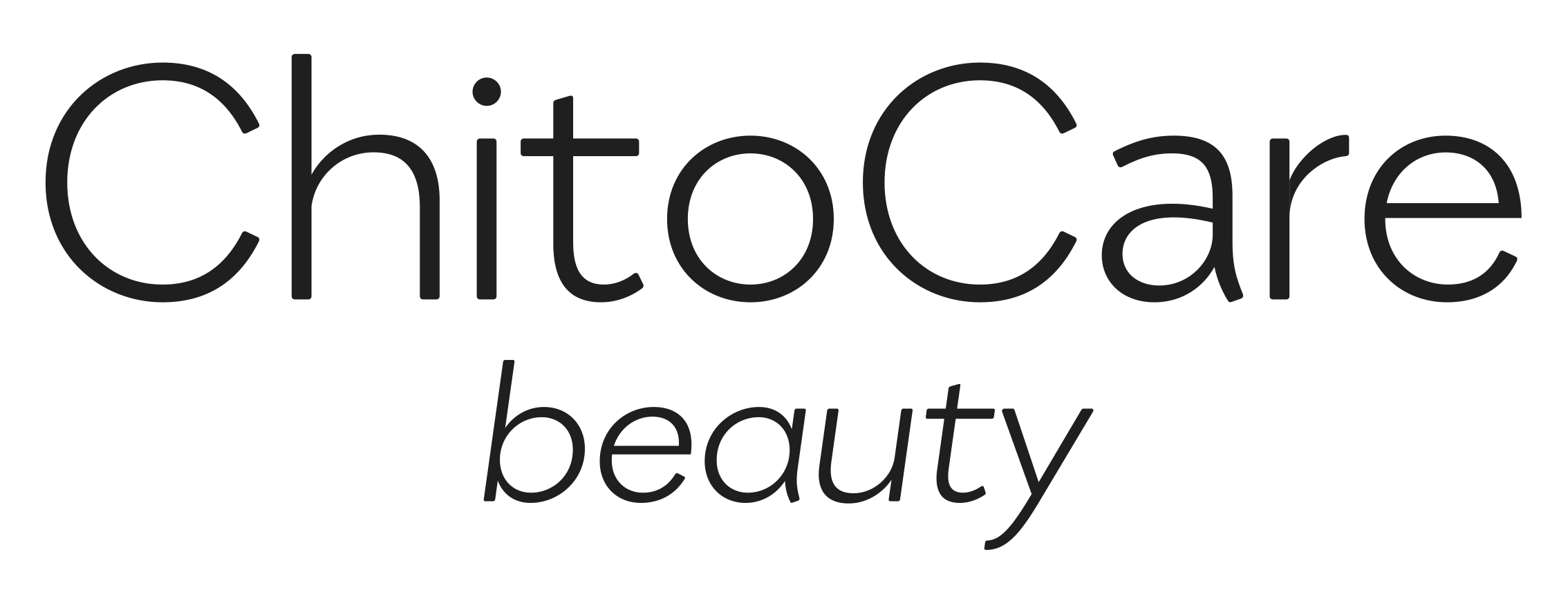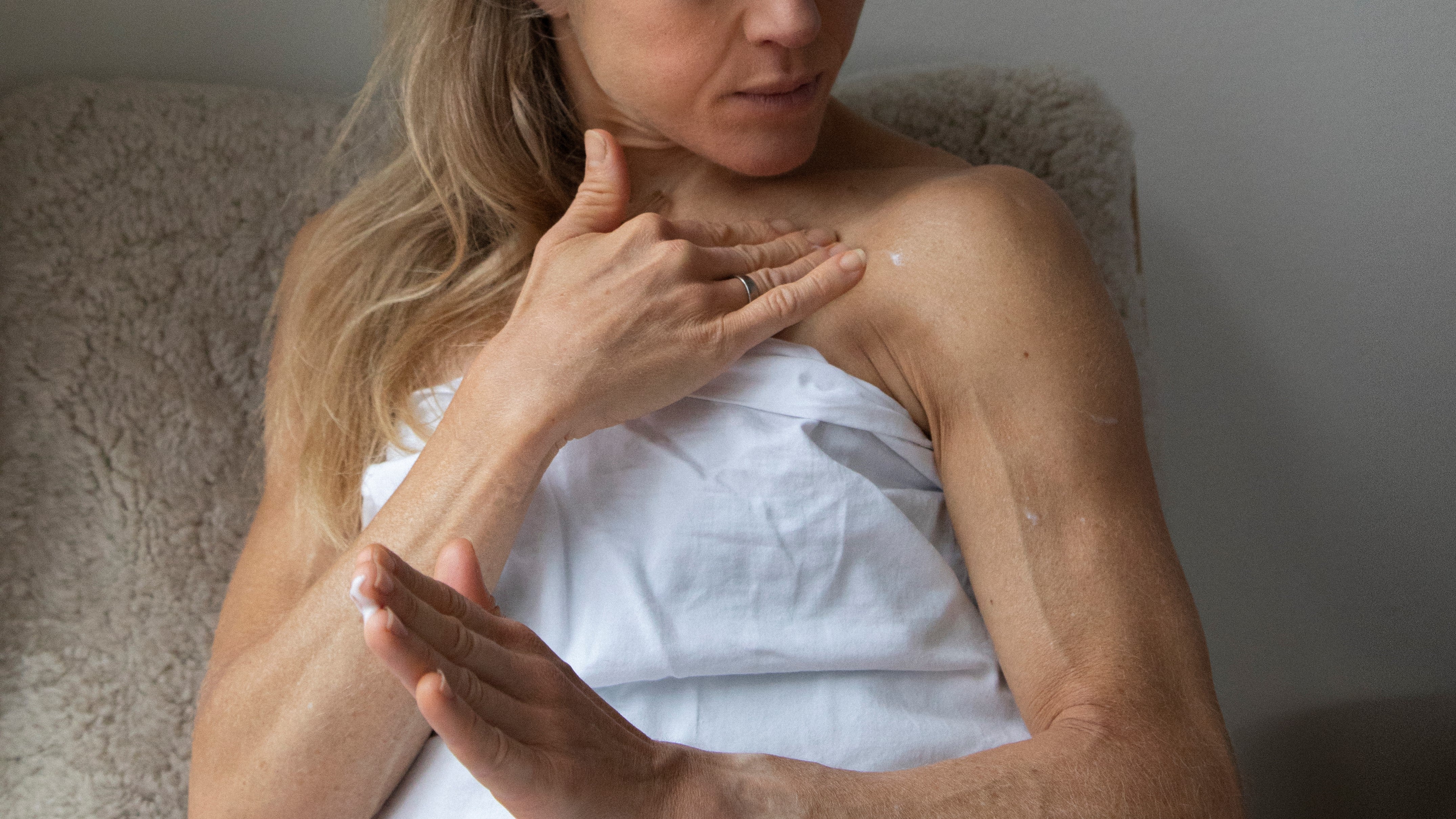
Common Skin Conditions: Rosacea
At ChitoCare beauty, we realize that information is an important tool for making better skincare choices. As skin conditions can often be confused with skin type, we highlight four common skin conditions that can affect people of all skin types.
Just like our fingerprints, each person’s skin is unique. Genetic makeup, climate, diet, lifestyle, external aggressors and many other factors affect our skin on a daily basis. Some people have a relatively easy experience with their skin and will show minimal problems throughout their lifetime. Others, however, may encounter skin problems at nearly every stage of their life.
While a lot of the ways in which skin reacts is related to a person’s skin type, which many people share, a specific skin problem, also known as a skin condition or skin disorder, can be developed by anyone, no matter what their skin type. In short, everyone has a skin type, but not everyone has a skin condition.
Skin type versus skin condition
The main difference between skin type and skin conditions is that skin type is mainly driven by one’s genes, alongside other intrinsic and extrinsic factors. Skin conditions, on the other hand, are developed and are considered a more serious skin health issue that require special treatment or professional dermatological help. Skin conditions are typically driven by one’s environment, immune system problems, other diseases, allergies or external irritants, however sometimes they can be inherited, or they can run in families.
Understanding whether any issues your skin has is due to a skin condition and not your skin type, is important for keeping your skin healthy, balanced and thriving. Misunderstanding skin conditions, or being unaware of them, could compromise your skin’s natural defense barrier and trigger further issues, such as inflammation, breakouts, irritation or sensitivity.
Some skin conditions are not curable, or they can fluctuate throughout one’s lifetime. Additionally, they can cause significant psycho-social distress, lower one’s self-esteem or be physically painful. Therefore, once diagnosed, it is important to keep an eye on them to take appropriate action. Most of the time, skin conditions can be alleviated and managed effectively, with professional assistance and the correct care.
Common skin conditions
As each person’s skin is unique, skin conditions can also vary from person to person in terms of causes, triggers, symptoms and treatment. Some skin conditions are rare, while some are common. If you think you might have a skin condition, consult with your healthcare professional or dermatologist, who can correctly diagnose you and offer treatment options. Below we outline some core facts about rosacea.
Rosacea
Rosacea is a common skin disorder that usually affects the skin of the face, but it can sometimes appear on the neck, chest, ears or scalp. While the causes of rosacea remain unknown, if left unattended it can get worse with time. One theory suggests that it is related to a malfunction of the skin’s connective tissue, while others suggest it is related to a blood vessel disorder. While not all symptoms appear in all people with rosacea, some symptoms are very common.
Common rosacea symptoms
- Consistently flushed or red skin, usually on the nose, chin, cheeks and forehead
- Persistent redness that looks like blushing or sunburn
- Thick or inflamed skin, or swollen areas
- Visible blood vessels
- Dryness, or a burning or stinging sensation
- Raised red patches of skin known as plaques
- Red pimples that can ooze pus and be confused with acne
- If left unattended: irritated, watery, swollen or bloodshot eyes
Rosacea typically appears in adults over the age of 30, especially fair-skinned individuals, occasionally in teens, and rarely in children. While rosacea shows up more often in women, the symptoms are more severe in men, perhaps because they often delay treatment until it has advanced considerably.
Like many skin disorders, a family history of rosacea increases the chances of development. Rosacea is not contagious. Even though it cannot be completely cured, certain lifestyle choices and environmental factors can trigger rosacea and make it worse. Learning to identify what might trigger it can help prevent a flare up.
Some rosacea triggers
- Exposure to UV light
- Very hot or very cold weather, dry air
- Hot baths, hot beverages or spicy food
- Alcohol consumption
- Intense exercising
- Emotional stress
- Certain medication or harsh skincare products
Especially when it comes to UV light, it is important for all people with rosacea to apply sunscreen with a SPF (Sun protection Factor) of at least 50 every day, as UV light makes it worse. A healthcare professional or dermatologist can correctly diagnose rosacea and offer further treatment options.
ChitoCare medical Healing Spray is a great treatment after spending time in the sun, to soothe the skin, reduce any redness and protect from further UV damage. Thanks to its antioxidant counteracting action on the skin, it relieves itching and pain and promotes natural skin healing.
Additionally, ChitoCare beauty Body Lotion can be applied to increase skin moisture after exposure to UV light.
___
* If you think you might have a skin condition, consult with your dermatologist. They can accurately diagnose you and offer treatment solutions.


